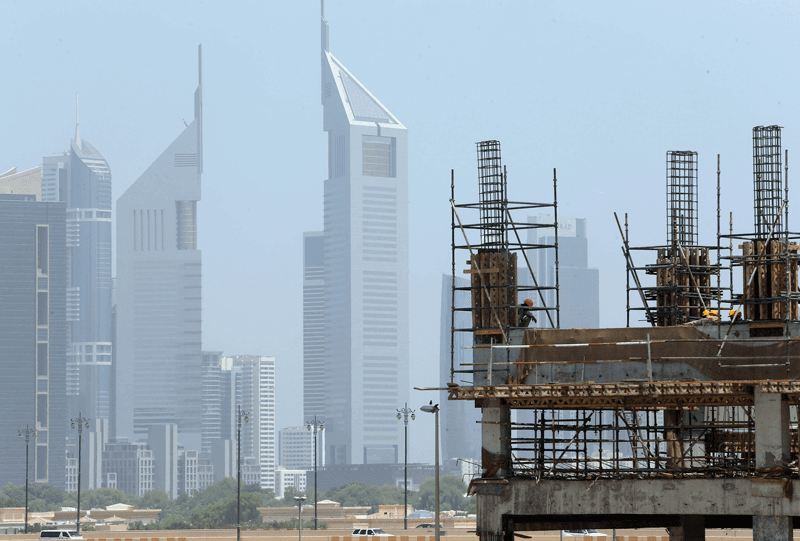
Cancellation of Real Estate Projects in Dubai: A Comprehensive Legal, Regulatory and Practical Analysis
A detailed overview of how Dubai regulators cancel stalled or non-compliant property projects, safeguard buyers’ funds and maintain market integrity.
Dubai’s real estate sector has long been regarded as one of the most attractive in the world, offering investors access to landmark developments, competitive returns, and a transparent regulatory framework. The city has taken major steps to enhance investor protection, particularly in the off-plan property segment, where buyers purchase units before completion. One of the most significant regulatory mechanisms within this framework is the cancellation of real estate projects -- a process designed to safeguard investors and ensure accountability when developers fail to deliver.
Grounds for Project Cancellation
RERA may move to cancel a project if a developer fails to meet its obligations or if the project becomes unviable. Common grounds include:
• Failure to commence or continue construction within the contractually agreed timeframe
• Financial insolvency or an inability to secure necessary funding
• Breach of escrow account rules, including misuse of investor funds
• Inability to obtain required permits or approvals from relevant authorities
• Technical, legal, or commercial impossibility of completing the project
Before issuing a cancellation decision, RERA undertakes an independent investigation that may include site visits, a review of construction progress, and an audit of escrow accounts. This ensures that the process is objective and evidence-based.
The Cancellation Process
Once RERA determines that a project should be cancelled, it follows a structured process designed to protect investors:
- Official Declaration: The project is formally declared cancelled, and the decision is published in the Official Gazette to ensure transparency.
- Escrow Account Liquidation: An independent auditor appointed by the DLD is tasked with liquidating the project’s escrow account.
- Refunds to Buyers: Buyers are refunded on a pro-rata basis from the escrow account, after deducting legitimate project expenses such as land acquisition costs and the value of completed construction.
- Legal Recourse: If the escrow funds are insufficient, buyers retain the right to pursue legal action against the developer to recover outstanding amounts.
This system balances investor protection with due process, ensuring refunds are tied to actual available funds rather than arbitrary estimates.
Consequences for Stakeholders
For investors, project cancellation can offer both relief and challenges. While it prevents further financial exposure to a stalled development and provides a legal pathway to refunds, the refunded amount may not always cover the full investment, and the process can take time.
For developers, cancellation is a serious regulatory sanction that damages credibility and may expose them to civil or criminal liability if misconduct, fraud, or misuse of escrow funds is found.
For the wider market, cancellation serves a corrective function. By removing unviable or non-compliant projects, the mechanism strengthens market confidence and helps preserve Dubai’s reputation as a secure investment destination.
Historical Context and Market Impact
The cancellation framework was most heavily tested in the aftermath of the 2008 global financial crisis, when hundreds of projects in Dubai were delayed or abandoned. Between 2009 and 2020, RERA cancelled more than 200 projects, resulting in billions of dirhams being refunded to investors through escrow liquidations. Although challenging in the short term, this process played a pivotal role in restoring investor confidence and supporting Dubai’s recovery.
Today, thanks to stringent regulations on escrow accounts, phased construction approvals, and stricter developer licensing requirements, cancellation rates have significantly declined. Nonetheless, the mechanism remains an essential safeguard.
Investor Takeaways
For investors considering an off-plan purchase, awareness of the cancellation framework is vital. Key steps include:
• Verify Escrow Registration: Ensure all payments are made into a RERA-approved escrow account.
• Review the Developer’s Track Record: Examine the developer’s history of completed projects and any past cancellations.
• Monitor Progress: Stay informed through official DLD updates and site visits.
• Understand Your Rights: Know that in the event of cancellation, you are entitled to a refund process supervised by RERA.
Conclusion
The cancellation of real estate projects in Dubai is not a weakness of the system, but rather evidence of its maturity. It reflects a regulatory framework that prioritises investor protection, enforces accountability, and upholds the integrity of the property market. While no investor welcomes project cancellation, the existence of a transparent and legally structured refund process provides essential reassurance.
In a market as dynamic and ambitious as Dubai, such safeguards are crucial. For investors, understanding this mechanism and undertaking proper due diligence are key to making secure and informed real estate investments.
For any enquiries please fill out this form, or contact info@thelawreporters.com and Follow The Law Reporters on WhatsApp Channels